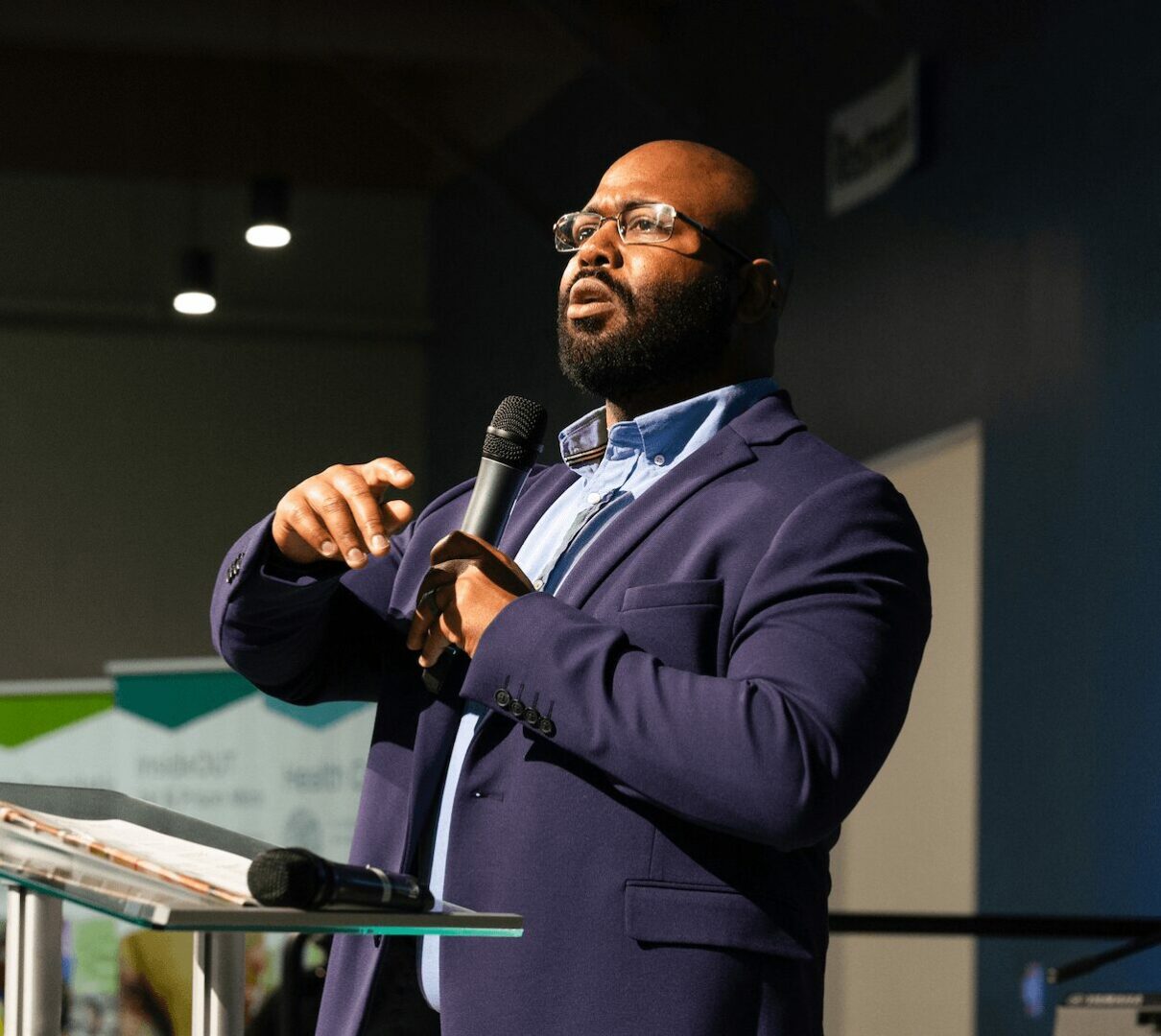We’re excited to introduce you to the always interesting and insightful Herman Armstrong. We hope you’ll enjoy our conversation with Herman below.
Herman, so good to have you with us today. We’ve got so much planned, so let’s jump right into it. We live in such a diverse world, and in many ways the world is getting better and more understanding but it’s far from perfect. There are so many times where folks find themselves in rooms or situations where they are the only ones that look like them – that might mean being the only woman of color in the room or the only person who grew up in a certain environment etc. Can you talk to us about how you’ve managed to thrive even in situations where you were the only one in the room?
Honestly, it’s something I’ve had to learn over time; how to stay grounded and purposeful in rooms where I stand out. This is something I’ve dealt with extensively coming out of north St. Louis and venturing into the professional world. Early on, I used to carry the weight of that difference like it was a disadvantage. But over the years, I’ve come to see it differently. Being the only one in the room who looks like me means I have a perspective no one else can bring; and that’s powerful.
What’s helped me most is walking in with a clear sense of identity. I don’t try to shrink or fit in just to make others comfortable. Instead, I show up fully as who I am; my story, my values, my culture. That authenticity tends to earn respect over time. And when I combine that with preparation and competence, it opens doors.
I’ve also learned not to carry the burden alone. I build relationships, find allies, and seek out mutual understanding. I don’t just represent myself; I represent people who aren’t in the room yet. That keeps me motivated to lead well, communicate clearly, and make space for others coming behind me.
It’s not always easy. But I’ve learned that being the “only” doesn’t mean being alone—it means being a bridge. And that’s a role I’ve come to embrace with confidence.
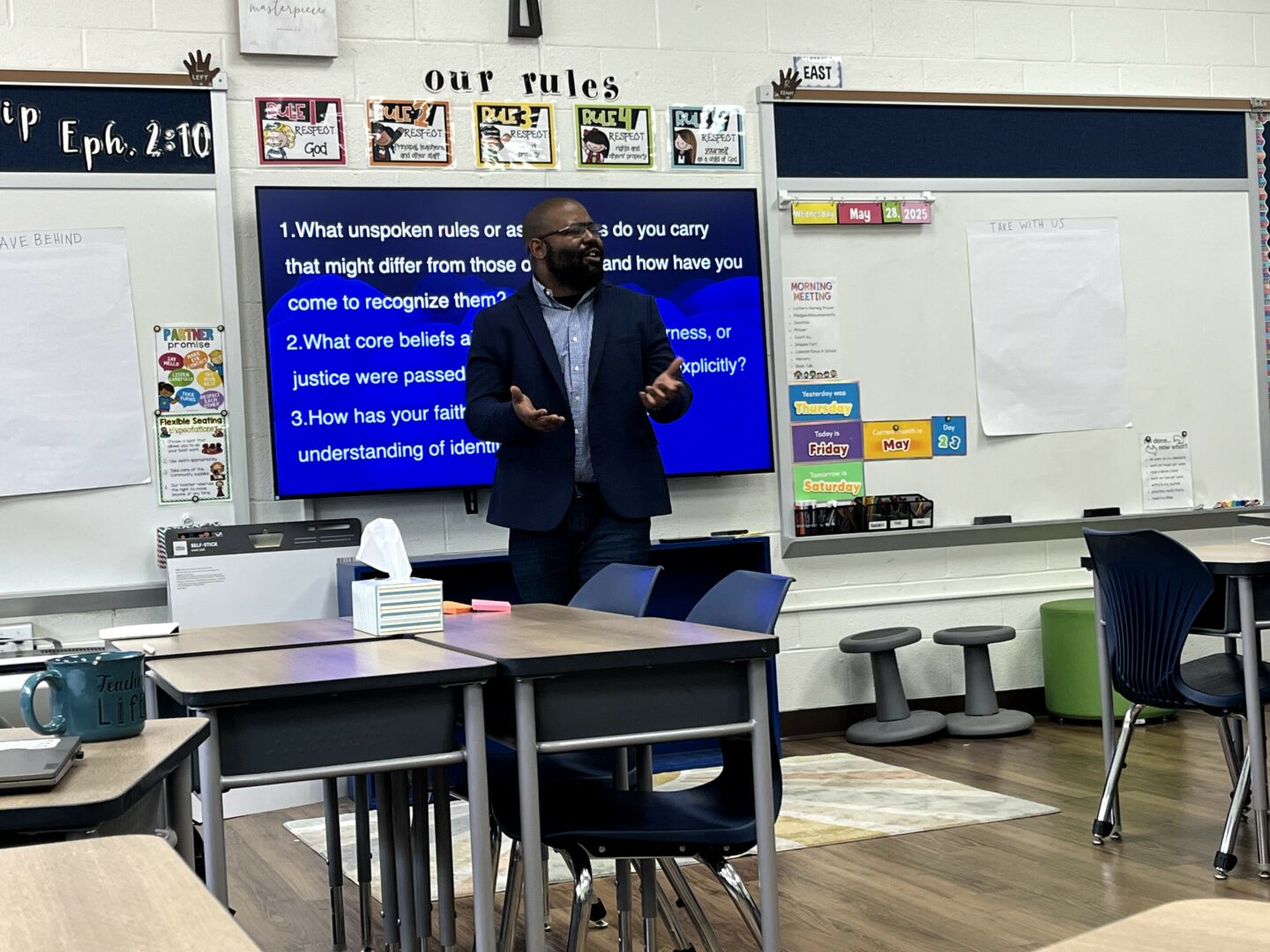
Let’s take a small detour – maybe you can share a bit about yourself before we dive back into some of the other questions we had for you?
Through Kathairo Solutions, I help organizations move from cultural confusion to cultural clarity. A lot of teams, especially in faith-based and service-driven spaces, know they want to do better when it comes to diversity, equity, and belonging, but they’re not sure how. That’s where I come in.
What makes my work exciting is that it’s not just about checking boxes or hosting one-off workshops. I walk alongside leaders to help them see how culture actually flows through every part of their organization, from hiring practices and team dynamics to how they serve communities. We go deep, because lasting change requires more than good intentions, it requires strategy, empathy, and accountability.
At Kathairo, we offer individual coaching, staff development, and student-centered presentations that are thoughtful, practical, and rooted in both cultural intelligence and biblical principles. What makes it special is that I don’t believe in “off-the-shelf” answers. Every partnership is relational and tailored. I ask tough questions, facilitate honest conversations, and help people build the skills they need to lead across difference.
Right now, I’m especially excited about expanding our school and church partnerships in St. Louis. We’re also launching a new “Culture Catalyst” coaching track this fall for Christian leaders who want to grow in cultural discernment and relational leadership.
At the end of the day, my goal is simple: to help people and organizations reflect the kind of love, justice, and understanding that truly changes lives. That’s what drives everything we do through Kathairo.
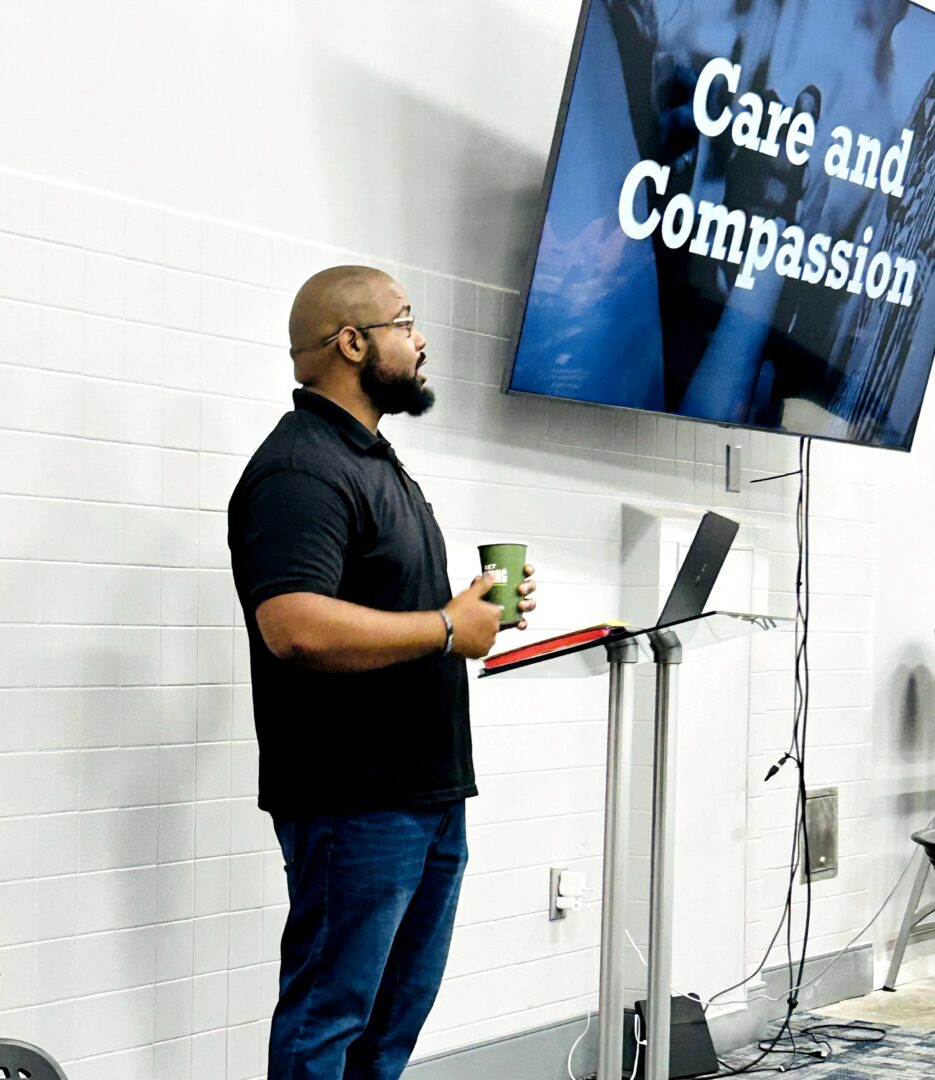
If you had to pick three qualities that are most important to develop, which three would you say matter most?
Looking back, I’d say three things have had the biggest impact on my journey: optimism, the ability to be uncomfortable, and a strong desire to keep learning.
First, optimism has been more than just a personality trait—it’s been a survival skill. Leading in cross-cultural and faith-centered spaces means you’re often dealing with slow change and tough conversations. But I’ve always held on to the belief that change is possible, that people can grow, and that our communities can look more like heaven on earth. That hope has kept me steady when the work felt heavy.
Second, I’ve learned to embrace discomfort. Whether I was the only one in the room who looked like me, or stepping into leadership roles without a clear roadmap, I had to get comfortable with uncertainty. Growth rarely happens in our comfort zones and being willing to sit in tension has allowed me to show up more fully and lead more authentically.
And finally, I’ve never stopped learning. Whether it’s sharpening my cultural intelligence, learning new communication tools, or digging deeper into Scripture, I’ve always had a hunger to grow—and that curiosity has opened doors I didn’t even know existed.
For anyone early in their journey, I’d say this: keep connecting and keep reading. Make it a habit to meet new people who stretch your thinking, and read books that grow your character and communication. How to Win Friends and Influence People is a great place to start—it’s simple, practical, and surprisingly timeless. The more you invest in relationships and personal growth, the more impactful your leadership will be.
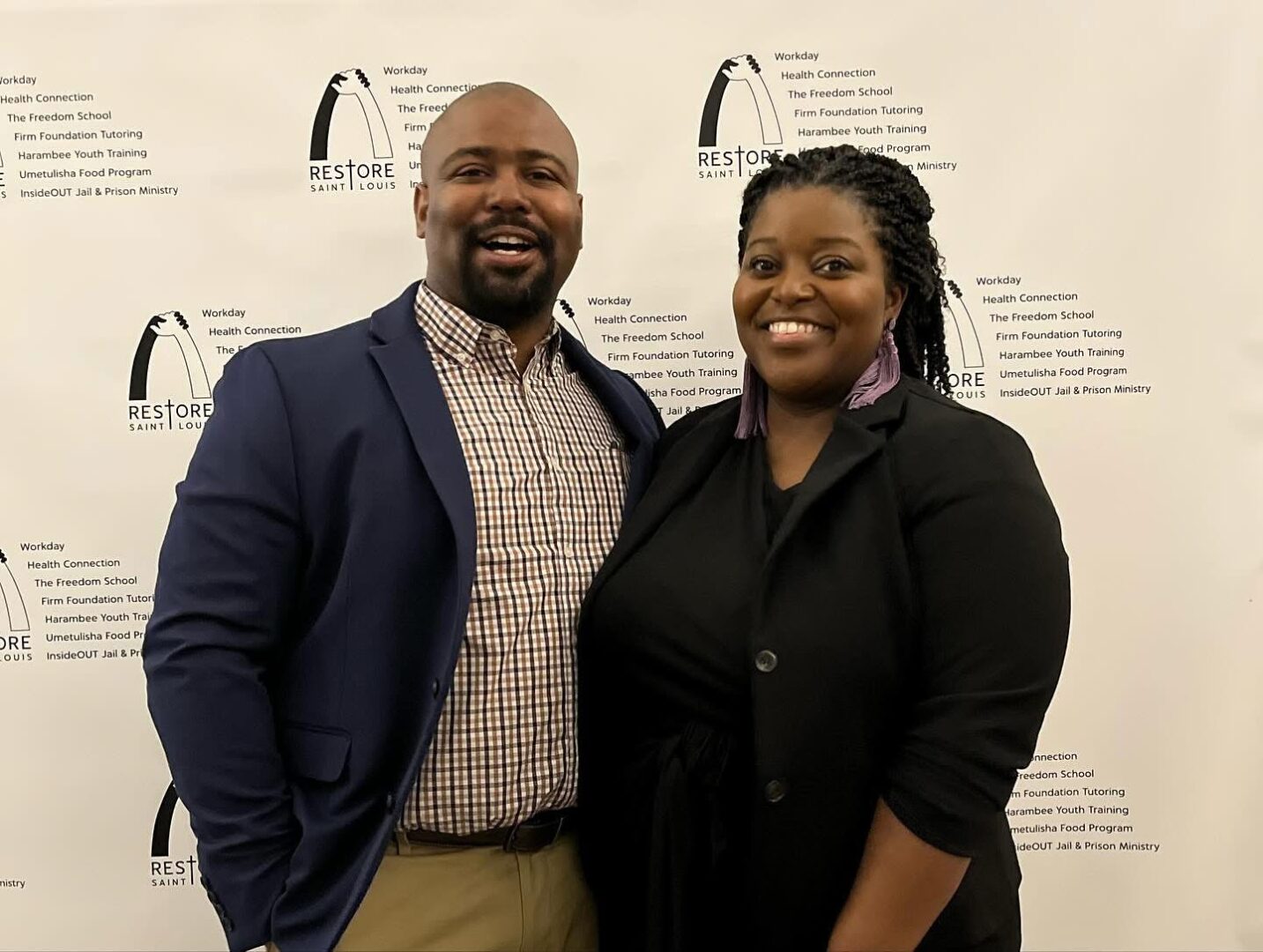
Tell us what your ideal client would be like?
My ideal clients are leaders who are willing to wrestle with hard truths because they believe the gospel calls us to something deeper than surface-level unity. They’re faith-driven, mission-minded, and unafraid to engage in real, sometimes uncomfortable, conversations about race, culture, and community.
Kathairo was born out of my own leadership adventures and experiences navigating race and culture in St. Louis. You know those times when leaders see a problem, but can’t put their finger on it? Our coaching is known for solving organizational issues that are below the surface such as miscommunication, unconscious bias, and any cultural divides. I kept finding myself in polarized situations and noticed that, when people took the time to pause and talk, they eventually were able to find common ground and respect the viewpoint of others (even if they did not agree with it).
Whether it’s a ministry leader trying to shepherd a multi-ethnic congregation with integrity, a school leader navigating cultural tensions among staff or students, or a nonprofit director trying to serve the city with humility and understanding; these are the people I love working with. They know that diversity alone doesn’t create unity. It takes intentional leadership, cultural humility, and a willingness to grow.
The leaders I serve aren’t looking for trendy DEI language. They’re looking for tools, perspective, and support to help their teams walk in truth, grace, and wisdom. They want to get it right, not just in theory, but in practice. And most importantly, they care about the people they serve, because they know the stakes are spiritual, relational, and generational.
If that’s you, or if you’re someone who feels the weight of these issues and wants help navigating them with clarity and conviction, I’d love to connect. Through Kathairo Solutions, I’m here to help you lead with courage, build trust across difference, and reflect the kind of unity that actually transforms lives.
We are known for balancing sensitivity and candor. Our philosophy is based on not being afraid to go deep and discuss the hard things. We set ground rules to create a safe space for all involved, facilitate open and honest discussion, and get to the root of issues. Establishing safety and transparency creates the first step to mutual understanding and positive change.
Contact Info:
- Website: https://kathairo.com/
- Instagram: https://instagram.com/therevwrites
- Linkedin: https://www.linkedin.com/in/kathairo/
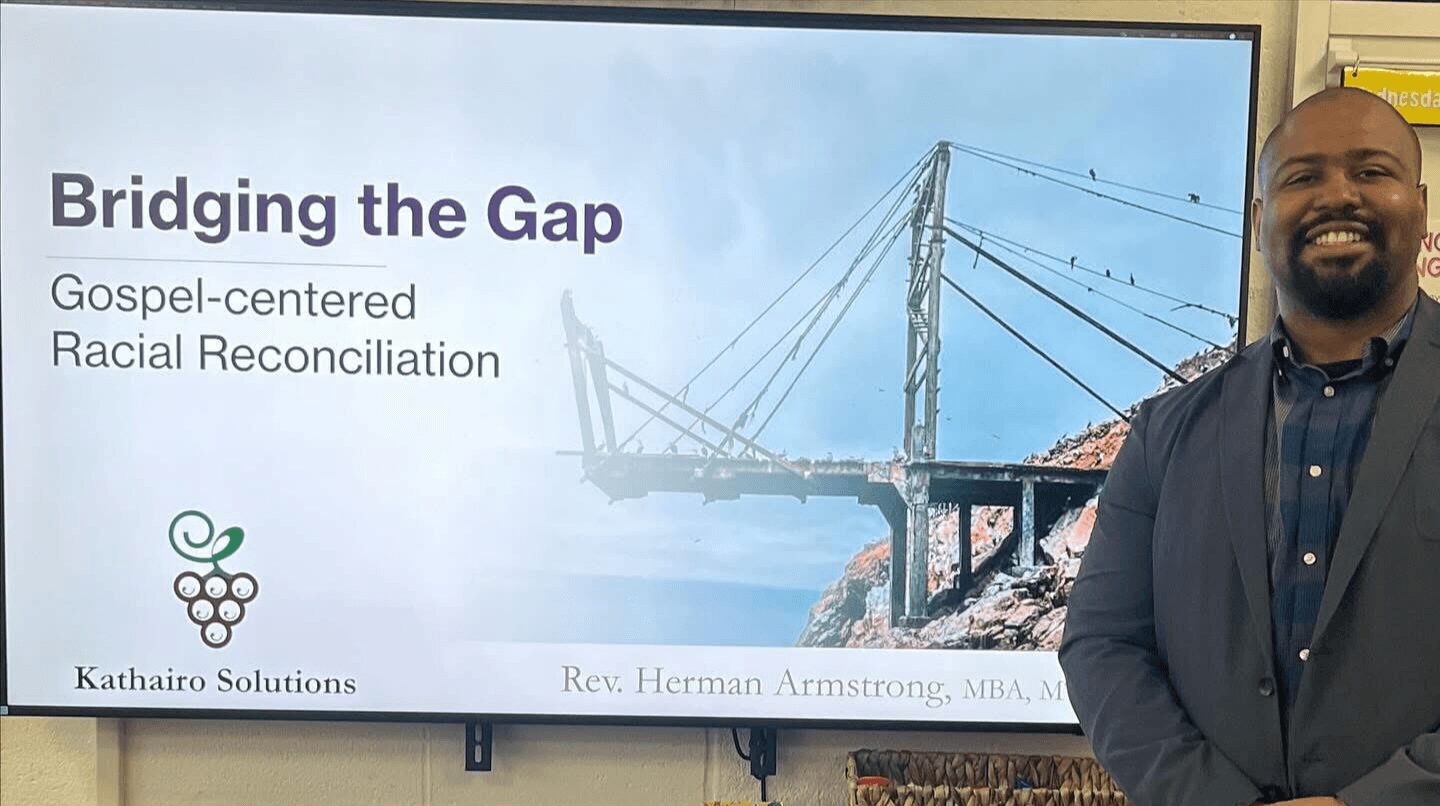
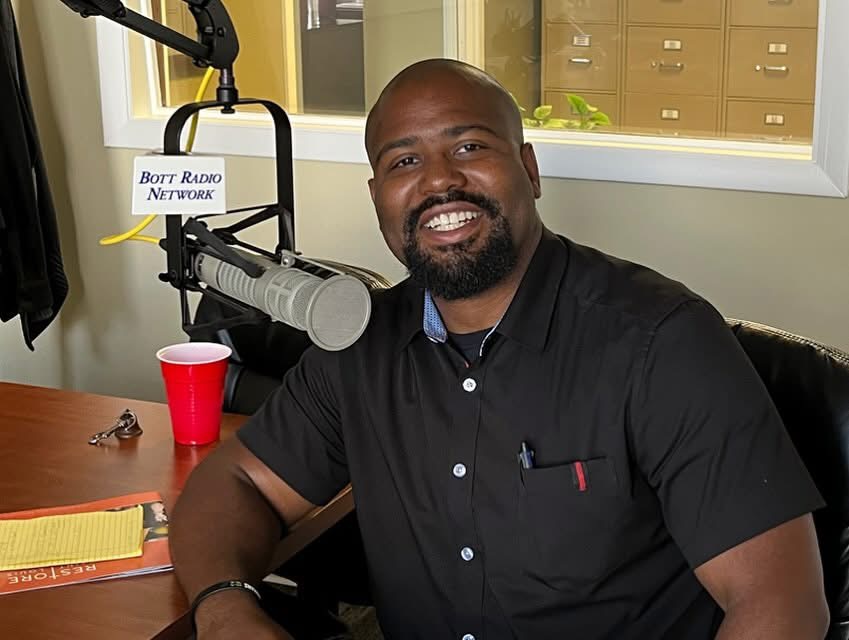
so if you or someone you know deserves recognition please let us know here.

